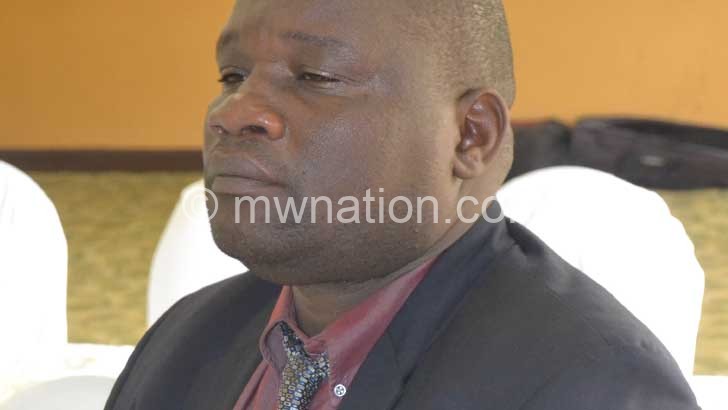Govt dishes Out arrears
The Lazarus Chakwera administration has within a year cleared 88 percent of verified private sector arrears, pumping K139.7 billion into
liquidity-starved businesses, earning a thumbs up from employers and captains of industry.
Confirming the development in an interview on Saturday, Treasury spokesperson Williams Banda said the bulk of the money was paid in the 2020/21 fiscal year.
Out of the K139.7 billion, K130.7 billion has gone to contractors while K9 billion is in tax refunds.
Banda said the arrears were initially estimated at K228.6 billion, but after verification by the Auditor General, K69.7 billion—or 30.5 percent of the claims— were rejected.

He said: “Out of the K158.9 billion that was audited and verified by the Auditor General’s office,
K130.7 billion has been paid through promissory notes and we are hoping to clear the remaining K28.2 billion as soon as possible.
“Going forward, we are hoping there would be no accumulation of arrears as government has changed the policy and introduced a non-compliance interest of one percent for any delayed payment after 90 days.”
The arrears—some of which Minister of Finance Felix Mlusu says date back to 2015—piled under the administration of Democratic Progressive Party’s Peter Mutharika.
In his 2020/21 Mid-year Budget Review Statement delivered in Parliament in Lilongwe early this year, Mlusu vowed to settle the arrears to help inject back much-needed liquidity into the economy to improve cash flows, boost investment, protect and create jobs.
Re a c t i ng t o t h e development, employers and business captains have since hailed the Chakwera administration for paying suppliers and honouring tax refunds that were stuck with government for years.
Employers Consultative
Association of Malawi (Ecam)—a grouping of private sector employers— said the liquidity boost from
the payment of arrears will help companies maintain and create jobs, which he said the economy needs.
In an interview, Ecam executive director George Khaki said: “Gains from this [settlement of arrears] are likely to increase demand for goods and services.”
On his part, Malawi Confederation of Chambers of Commerce and Industry spokesperson James Chimwaza said the business community was particularly happy with the progress on tax refunds.
He said the payments were expedited following the Chakwera administration’s move to change the tax refund policy, which doubled refunds from revenues generated to three percent from 1.5 percent.
But while commending government for efforts to clear contractors’ arrears, Chimwaza said the chamber appreciates that other government financial obligations could affect the payment of the remaining funds.
He said: “From our Public Private Sector Partnership Meeting held on September 15 [2021], we have seen an improvement
and commitment towards private sector arrears settlement.
“However, we understand that what they do is in tandem with other financial obligations on the part of government like immediate disbursement, Affordable Inputs Programme, funding and external debt repayment.”
Expenditure arrears arise when governments are unable to discharge their payment obligations in a timely manner, the consequences of which can . be dire for businesses and
the economy in general
Ac cording to the International Monetary Fund (IMF), the accumulation of expenditure arrears by governments—which in the case of Malawi is the largest client for most businesses— can have a serious negative effect on the domestic economy, including reduced economic growth as payment delays reduce pace of economic activity and increase unemployment.
The pile-up can also reduce or interrupt public service delivery where, due to limited resources amid rising cost of supplies, governments may be forced to reduce the amount of supplies purchased and/ or the volume of service provided.
It can also increase interest rates and reduce confidence in fiscal policy.
Reads the IMF ’ s Prevention and Management of Government Expenditure Arrears Report: “Illiquid suppliers may try to bridge the delay in payments by borrowing from banks, adding pressure to credit markets, and driving up interest rates. These pressures, in turn, may induce the central bank to relax monetary policy, further driving up the domestic price level.”
The temporary accumulation of government expenditure arrears is sometimes the result of acute government liquidity shortages that accompany serious economic or financial crises, says the fund.
Persistent expenditure arrears are typically a symptom of underlying weaknesses in a country ’s public finance management systems, including inadequate legal frameworks, unrealistic budgeting, weak or cumbersome expenditure controls, inefficient cash management, lack of or problems with a financial management information system or gaps in fiscal reporting.
The 2017 Construction Sector Transparency Initiative Assurance Report found that long after some road projects were initiated with funding from loans, the cost had doubled or tripled due to delays in construction.
The report noted that cost-overruns and delayed funding to locally resourced projects were the major factors affecting the construction industry





